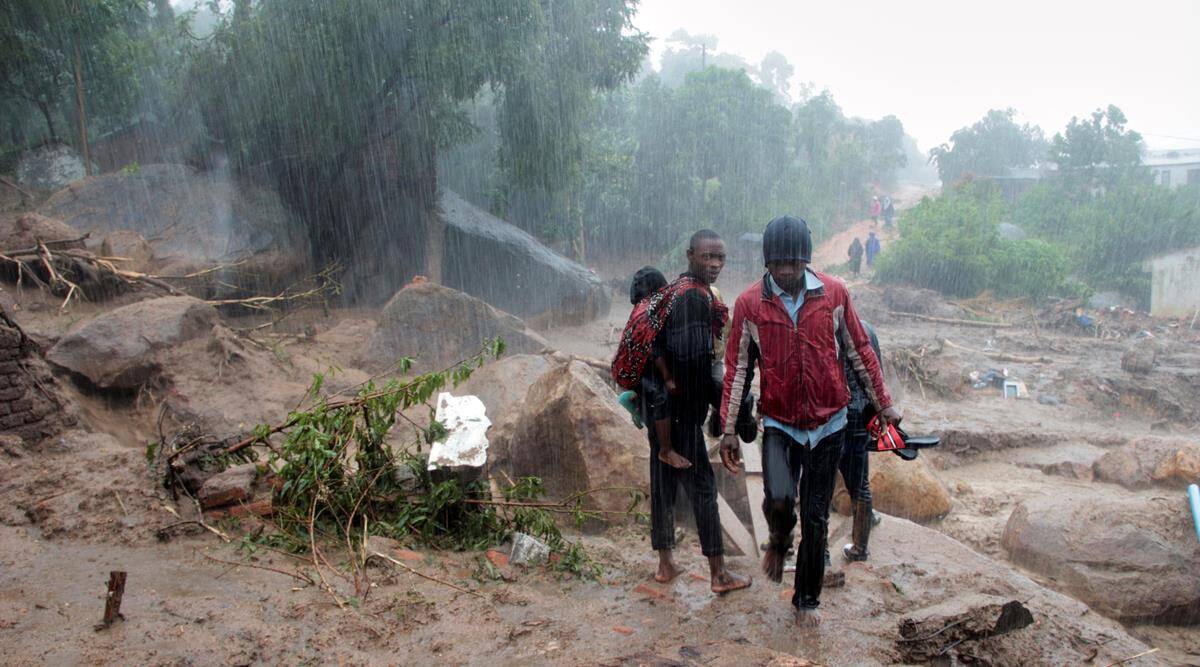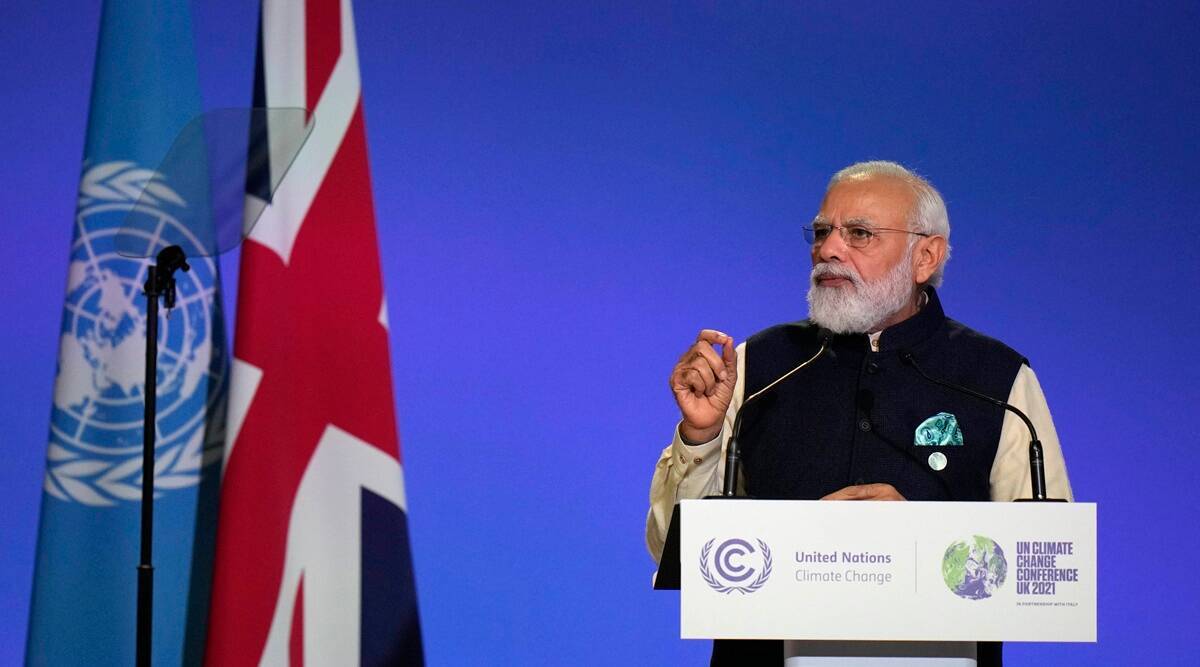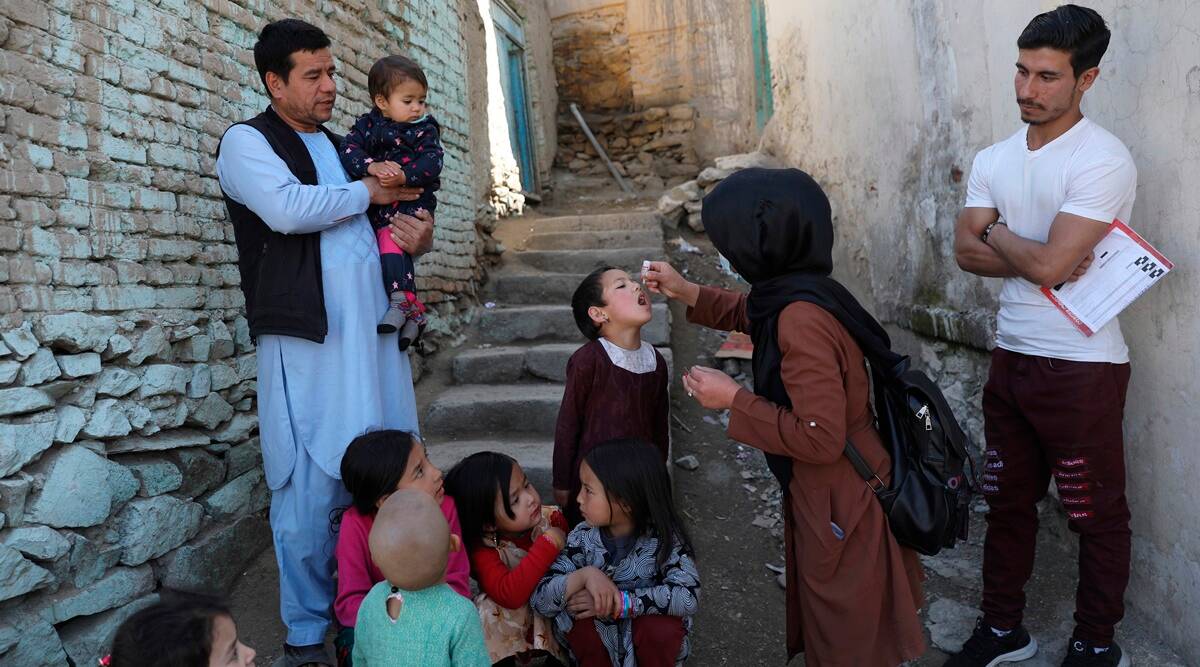
03/13/2023
Blantyre, Malawi, Mar. 13: An unrelenting Cyclone Freddy that's battering southern Africa has killed more than 100 people after striking the continent for a second time on Saturday night, authorities in hard-hit Malawi and Mozambique countries have confirmed. The Red Cross on Monday put the overall death toll from the weeks-long storm at almost 100, with several deaths also reported on the island of Madagascar.
CBS News' Sarah Carter said a state of disaster was declared in Malawi, where authorities said Tuesday that at least 99 people had been confirmed dead as a result of the cyclone since it first struck. Police spokesman Peter Kalaya said rescue teams were completely overwhelmed and residents in affected areas were forced to dig through the mud with their bare hands to find survivors.
At least 85 people were confirmed dead in Blantyre, Malawi's largest commercial city, and schools across the country were to remain closed at least until Wednesday. The deaths in Malawi include five members of a single family who died in Blantyre's Ndirande township after Freddy's destructive winds and heavy rains demolished their house, according to a police report. A three-year-old child who was "trapped in the debris" is also among the victims, with her parents among those reported missing, authorities also said.
"We suspect that this figure will rise as we are trying to compile one national report from our southwest, southeast and eastern police offices which cover the affected areas," Kalaya said.
The cyclone lashed over Mozambique and Malawi over the weekend and into Monday. It's the second time the record-breaking cyclone — which has been causing destruction in southern Africa since late February — made landfall in mainland Africa. It also pummeled the island states of Madagascar and Réunion as it traversed across the ocean.
The cyclone has intensified a record seven times and has the highest-ever recorded accumulated cyclone energy, or ACE, which is a measurement of how much energy a cyclone has released over time. Freddy recorded more energy over its lifetime than an entire typical U.S. hurricane season.
Freddy first developed near Australia in early February and traveled across the entire southern Indian Ocean. It's set to be the longest-ever recorded tropical cyclone. The U.N.'s weather agency has convened an expert panel to determine whether it has broken the record set by Hurricane John in 1994 of 31 days.
Freddy made landfall in the seaport of Quelimane in Mozambique on Saturday where there are reports of damage to houses and farmlands, although the extent of the destruction is not yet clear. Telecommunications and other essential infrastructure are still cut off in much of the affected Zambezia province, impeding rescue and other humanitarian efforts.
French weather agency Météo-France's regional tropical cyclone monitoring center in Réunion warned Monday that "the heaviest rains will continue over the next 48 hours" as Freddy barrels on. Mozambique's central provinces and Malawi have been identified as especially vulnerable to "floods and landslides in mountainous areas" by weather monitors.
Much of the damage experienced in Malawi is in homes built in areas prohibited by law such as in mountainous regions or near rivers where they are battling landslides, unprecedented flooding and rivers bursting their banks. The cyclone has forced the Malawian government to suspend schools in 10 districts in its southern region "as a precautionary measure."
Freddy is expected weaken and to exit back to sea on Wednesday, according to Météo-France.
Amnesty International called on Tuesday for international support for the hardest-hit African nations - for both immediate relief and, in the longer-term, as compensation for the damage done by a changing climate in nations with some of the lowest carbon footprints on the planet.
"The Southern African Development Community and the international community must mobilize the necessary resources to aid rescue efforts in the countries hardest hit by Cyclone Freddy," the U.K.-based human rights organization said in a statement, adding that "the focus must be on saving lives and providing relief in a manner that is compliant with human rights standards, for those who have lost their homes and livelihoods."
"The affected countries must also be compensated for loss and damage caused by the cyclone," said Amnesty. "Mozambique and Malawi are among the countries least responsible for climate change, yet they are facing the full force of storms that are intensifying due to global warming driven mostly by carbon emissions from the world's richest nations."-Agencies






